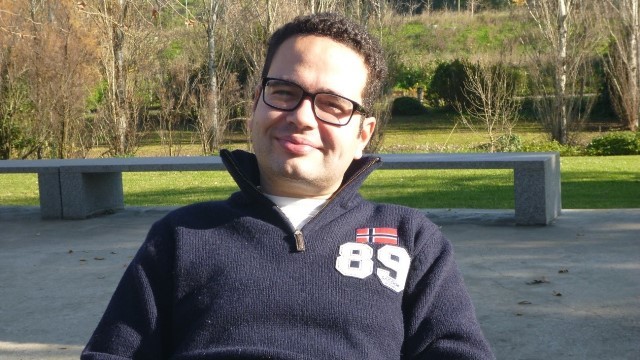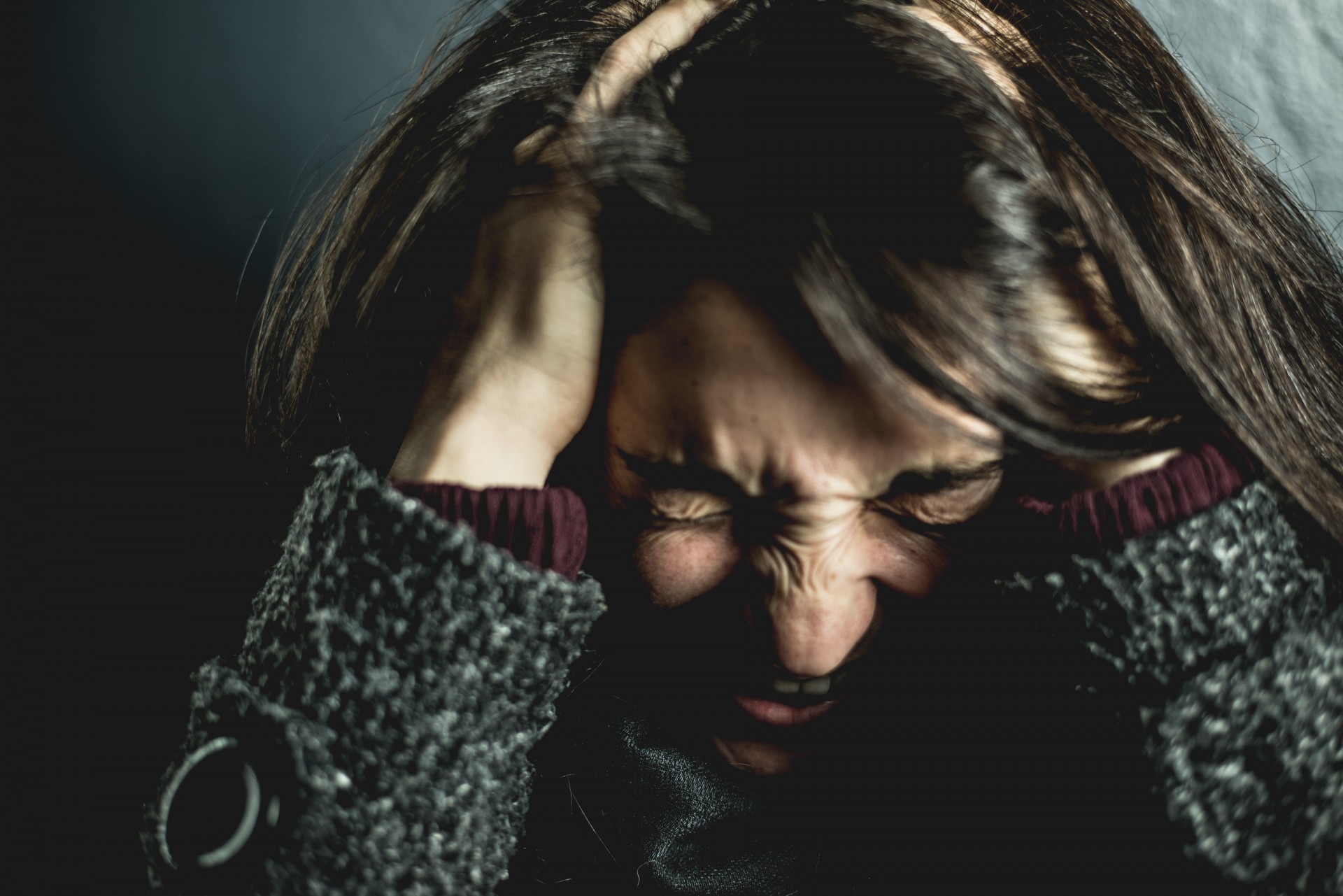Depression, anxiety crisis and burnout are different themes, but all of them are potentially observable mental states in medical students.
In a month of exams and after we heard the students talking about the pressure of the National Seriation Examination, we spoke with one of the specialists associated with mental health and the person who is most in contact with the students.
Rui Martins is the resident Psychologist at Espaço S, an area created with the well-being of students in mind and which belongs to the Student Support Office. Despite the different roles of the Student Support Office, all share a common concern, which is to identify early cases of burnout, lack of integration, or withdrawal from the group and to reconnect with those cases.
We met Psychologist Rui Martins at Espaço S, and although we can easily skid to other concepts such as depression, the truth is that our aim focuses on the processes that occur in burnout.

What is burnout and what are the limits that define it?
Rui Martins: Burnout is the syndrome of exhaustion, of someone who has reached the limit, exhausting his/her resources. From a clinical perspective, burnout occurs in professional and academic situations, this is the main difference from other depressive conditions, which normally include other dimensions of the individual's life. It is the performance requirement that exhausts the person. It is the prolonged months and years of excessive requirements that exhaust the person. The burnout diagnosis excludes the one regarding depression. But the depression diagnosis can contain burnout. Common sense spoke of depression as exhaustion, in fact all meant the same and burnout until recently belonged to one of the categories of depression. Typically characterized as a consequence of professional pressure, burnout became isolated from depression, despite having many depressive characteristics. From apathy and lack of energy, if we examine the moments that marked that person, we will hear mainly professionally related reports and not the most personal and emotional fields.

Is it possible to trace the profile of students who come here with burnout characteristics?
Rui Martins: Generally, Espaço S receives profiles, some of them, with mood disturbance, with an already very affected academic component. They stop attending classes and become isolated, unable to manage their entire day. They know, however, that they are limited by their absences since there are many classes whose attendance is mandatory and they cannot miss them. Their social phobia, despair and anguish for perfectionism means that facing a normal day is an almost impossible task. They complain a lot about the level of difficulty of some subjects, the lack of time to prepare classes in advance. Then there are other times when students are directly questioned and that intimidates them. They feel that at any moment they will be questioned in the presence of their peers and are afraid to hear some derogatory comments because they do not know how to answer.
Do people know how to identify in themselves that they are going through a burnout process?
Rui Martins: This is a slow and gradual process, so people usually cannot identify it. They feel very tired and sad and lose motivation, but they do not easily identify it themselves. Everything becomes difficult and everything that they still manage to do, they do with enormous difficulty. Everything has a huge impact on the lives of these people because they do not want to go out or socialize, they do not want to receive phone calls, they do not want to watch television, they just want to sleep and stay away from everything around them. We are heading towards a severe depressive situation.
We are in a month of exams and January is very demanding. Is it customary for students to come to Espaço S complaining of burnout?
Rui Martins: The truth is that whereas the degree is very demanding, the students are also very competent. We rarely receive isolated cases of burnout. There is a profile of students here who has always been the best in school, top of their class, with very good grades while at high school. And when they get here they can't take the pressure. In parallel, there are other factors that are not working well. There is an initial picture of an apparent and just burnout, but in the back we have more elements that were already there and that are not a consequence of burnout. I would say that most burnouts end up being depressions, with some very severe diagnoses.
Who are the students more likely to experience burnout?
Rui Martins: In the early years it is more difficult for students to experience burnout, because they are still far from reaching the end of their study process and therefore feel tired. We can assume that the first years bring us more cases of anxiety disorder, students are very afraid of not being able to perform well. In the last few years, even in years 5 and 6, there are more depressive conditions, some of which chronic, in which the requirements of the degree are often contributing to this condition. Whether students are in the early or late years, the fact that they are or not displaced is important. Those who come from other parts of the country have a busier day, they go home and still have to clean it and prepare their meals. Then there is an added psychological pressure, which is the burden they represent for their families. They feel that they are an economic drag on the family, even if the family has not put any pressure on them. Many of them think, "I cannot fail because I cannot stay here another 6 months or a year". The fact is that the costs are really high, it is the cost of a house or room, food and some subsistence costs, so they know the difficulties they can cause to their parents. These thoughts are further exacerbated when the final exam, that is, the National Seriation Exam approaches, making them ask themselves, "if I don't succeed, what am I going to do?" This is an added burden especially for displaced students.

How do you work with someone with burnout?
Rui Martins: There are two important things to keep in mind. One of them is when students present a picture of anxiety and concern, and then it is necessary to help them understand that they have the tools they need and that, if there are difficulties, that the fact they made it here is because they are very able. We can often help them to realize that what they have to solve is not so much the academic component, since they are usually good at creating strategies to study. It is their adaptation process that deserves our greatest attention. This adaptation phase takes time, because they need to settle down, to create their own social network, they cannot isolate themselves from the world and just study. Routines on well-being should also be part of their day, sports and cultural experience is important. Many, while in high school, went out several times, played musical instruments, or were athletes, some competing. Then they arrive at the Faculty and as they cannot reconcile everything, the enjoyment aspect goes and they miss it a lot.
The second aspect, when there is a psychopathological condition going back sometime, means there is already a disturbance and in this case they have to be involved in a psychotherapeutic process where the factors that contributed to the onset of depression are identified, as well as the factors that are maintaining it. We often need to refer them to another type of follow-up, since here at Espaço S we are unable to do psychotherapy with the necessary follow-up for these cases. Some cases even require medication.
How is the bridge with Santa Maria Hospital team established?
Rui Martins: There is a formal protocol connection with the HSM, but students have several follow-up possibilities. From the moment they accept this follow-up, an internal procedure is made to refer them to the team that will follow them. Then they wait for the appointment and only afterwards are followed-up at the Hospital. We also follow them up. Every 3 or 6 months we call the student and try to understand how the whole process is going and if the minimum standards to stay in the degree are ensured. But there are also other support services, where we facilitate contacts and which are outside Santa Maria.
Is the follow up done with the student and not with the doctor who is following him up?
Rui Martins: That's right. Although in the protocol with the HSM we have safeguarded this feedback from the Hospital team itself, we always contact the student, at least once per semester.

Does Espaço S also give any feedback to the Faculty itself so that some joint actions with students may be readjusted? Can Espaço S intervene with the Faculty to adjust aspects that can help them?
Rui Martins: As you know, Espaço S is part of the Student Support Office. There are several activities in this Office, one of which is the discussion of ideas on the topics that come up in conversation. We try to understand what students ask us technically, but also those questions that technicians and mentors who follow students observe and think are relevant to them. To give you an example, at the beginning of the year we held a special clarification session for displaced students and this is because we realized that the first years had many displaced students and an almost preventive action was needed to say that there are added difficulties for those who are displaced. Newcomers are always more isolated and need to explore the city, find out about transport and what surrounds him. We also took the opportunity to talk about Espaço S, which offers individual consultations. But it is important to say that mentoring and individual meetings offered by the SSO are all forms of integration and offer solutions found by the older students.
Can the mentors warn of a more worrying case when the actual student does not come here asking for help?
Rui Martins: This situation has already happened. We received a student accompanied by older colleagues. Mentors establish bonds in students' lives more consistently and can be very supportive in this early life here. There are also some administrative staff of the Faculty who interact a lot with students and can be good observers. Lecturers themselves can also be referencing elements, as they have been. There are situations of isolated students in class who start to cry. In these cases, it is necessary to assess whether that state of mind has been dragging on, or whether it is a one-off episode. But we have more activities planned involving giving some tools to a group of people who are close to the students so that they are more sensitive to their behaviour, acting as referrers. In my absence from Espaço S or Rita Sobral’s absence from the Student Support Office, these connecting elements will intervene if necessary. They will be able to either call me, or in serious cases take someone to the emergency room right away.

For Rui Martins, observing students in years 1 or 2 with traits of apparent fear due to academic pressure is very important so that they do not degenerate into a deeper depression. The earlier a problem is identified, the shorter the action and treatment time will be. And if we all have depressive conditions, then we need to talk about them and create communication dynamics that allow for self-reflection and analysis from the outside.
Espaço S works at the Institute of Preventive Medicine (next to the Egas Moniz Building), office 71, with the following hours:
Twesday | Wednesday – 8.30am to 11.30am // Thursday – 3pm to 7pm
To book a place for an evaluation at Espaço S, just send an email espacos@medicina.ulisboa.pt with the following data: Full Name, Date of Birth, Course and Year of Attendance, Contact Phone. This email will only have access to the Psychologist who carries out the initial assessment, being completely confidential and banned from anyone outside the Working Group.
Joana Sousa
Editorial Team


